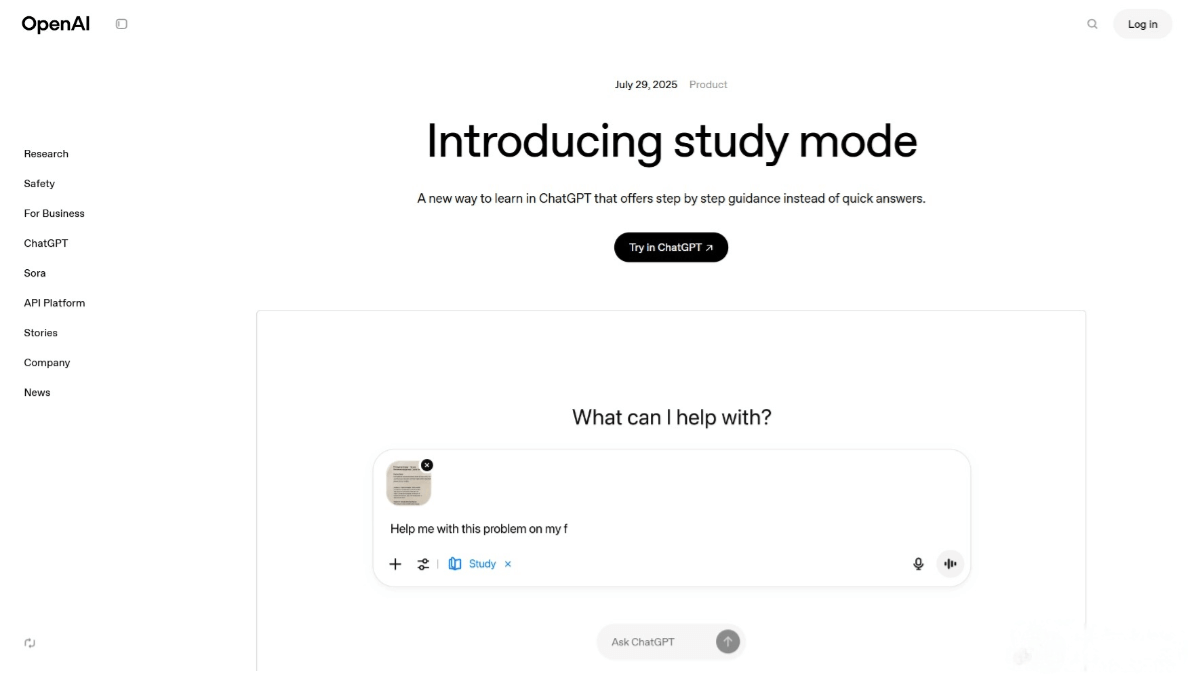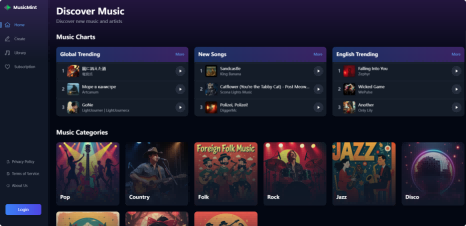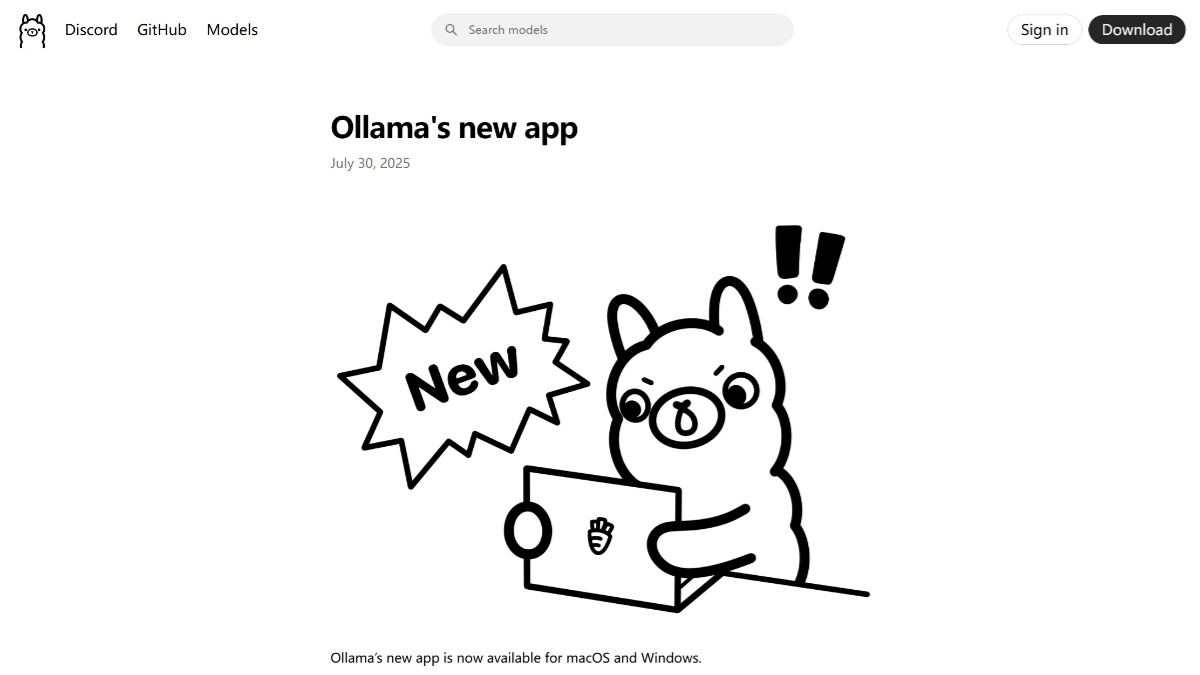What is ChatGPT Study?
ChatGPT Study is a learning mode introduced by OpenAI within ChatGPT, designed to help users learn and understand knowledge more effectively—not just get answers. Through interactive questioning, scaffolded responses, personalized teaching, and knowledge checks, ChatGPT Study guides users to actively think and gradually solve problems. The mode combines Socratic questioning and self-reflection prompts to deepen understanding of complex concepts while fostering critical thinking and independent learning skills. ChatGPT Study is available to Free, Plus, Pro, and Team users, and will be opened to ChatGPT Edu users within the coming weeks.

Key Features of ChatGPT Study
-
Interactive Questioning
Uses Socratic questions, prompts, and self-reflection queries to encourage active thinking and promote deeper learning. -
Scaffolded Responses
Breaks down complex information into manageable chunks, highlights connections between concepts, and provides appropriate background to avoid information overload. -
Personalized Teaching
Tailors content based on the user’s skill level and conversation history to meet diverse learning needs. -
Knowledge Checks
Offers quizzes, open-ended questions, and personalized feedback to help users track progress and reinforce knowledge retention and application.
How to Use ChatGPT Study
-
Enable Study Mode
Turn on Study Mode within the ChatGPT interface to enter the learning mode. -
Ask Learning Questions
Input the topic or question you want to learn about, e.g., “I want to learn game theory” or “Help me understand sinusoidal positional encoding.” -
Follow Guided Questions
Think carefully and respond to ChatGPT’s guiding questions to encourage active learning. -
Adjust Learning Based on Feedback
Use personalized feedback from ChatGPT to consolidate knowledge or explore topics further. -
Switch Modes Anytime
Toggle between Study Mode and regular mode as needed—switch to regular for direct answers or stay in Study Mode for deeper learning.
Application Scenarios of ChatGPT Study
-
Academic Learning
Helps students grasp complex academic concepts, prepare for exams, and write papers. -
Language Learning
Supports interactive conversational practice to improve vocabulary, grammar, speaking, and writing skills. -
Professional Skill Development
Provides guidance on skills like programming, data analysis, and project management for professionals. -
Personal Interest Learning
Supports learning in areas like art, music, and health to help users develop personal hobbies. -
Educational Support
Assists teachers in curriculum design, helps parents tutor their children, and serves as a supplement to online education.




